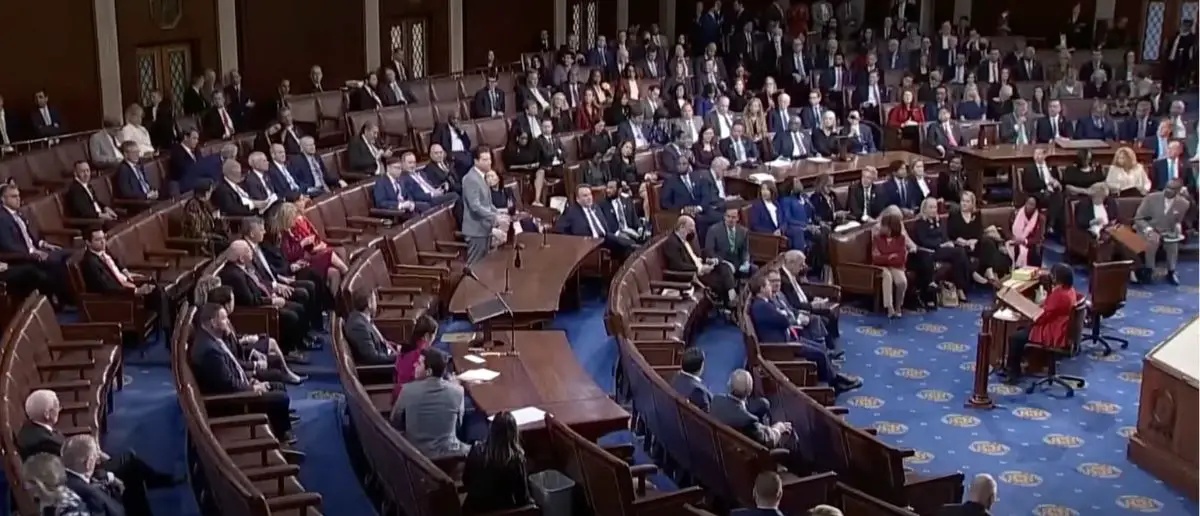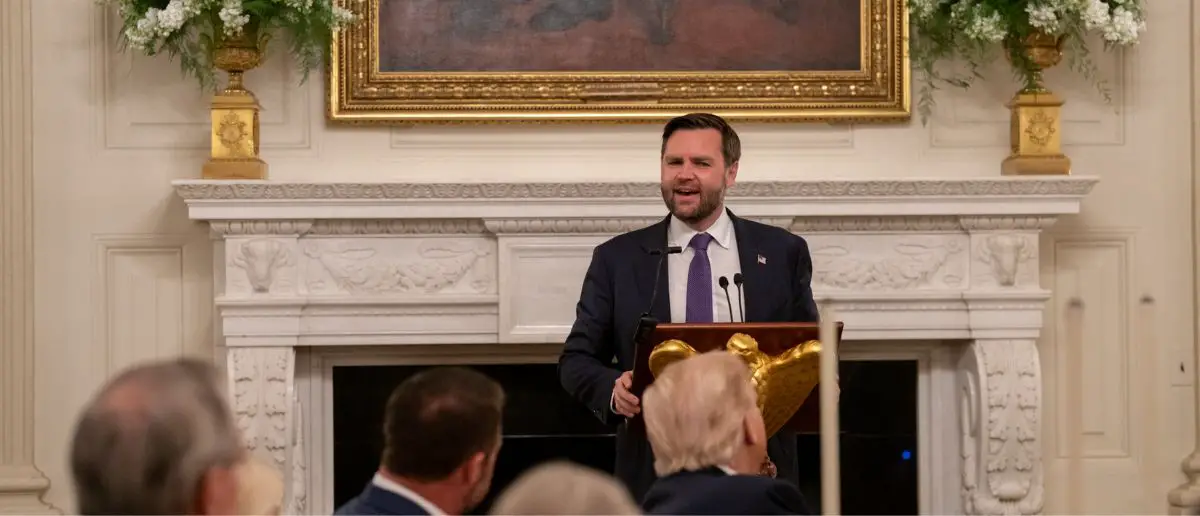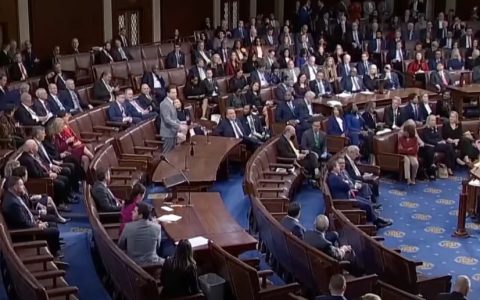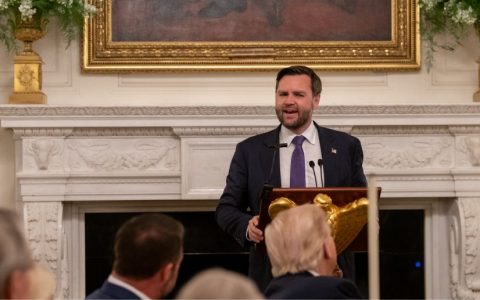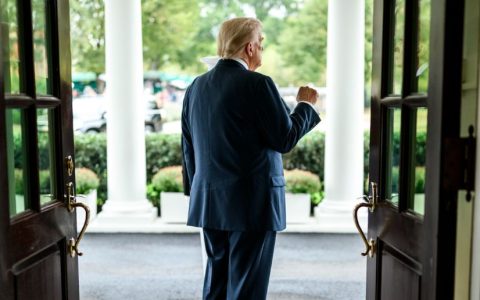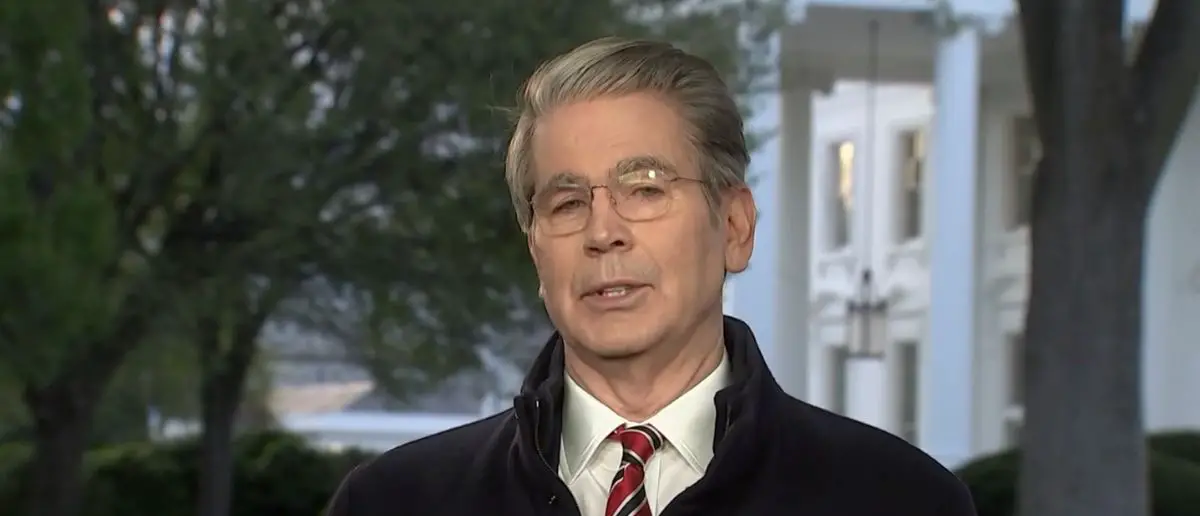
The Trump admin is done putting America last. They’re putting their money where their mouth is.
That’s why Trump’s close ally just uttered seven words in a speech that left the entire world wide-eyed.
Trump’s Bold Vision for Global Trade and Financial Reform
The Trump administration is charging forward with an ambitious plan to create a more fair international trade future, prioritizing American interests rather than the rest of the world’s. Treasury Secretary Scott Bessent, a key figure in this endeavor, laid out a compelling vision during the spring meetings of the International Monetary Fund (IMF) and World Bank. His speech raised eyebrows when he made it clear that the United States was done playing the role of a red-headed step-child who can’t speak up for themselves.
“America First does not mean America alone,” Bessent declared in a speech on the sidelines of the IMF and World Bank meetings. This statement encapsulates the administration’s philosophy: a commitment to advancing U.S. interests while engaging with the world. Far from isolating the United States, the Trump team seeks to amplify its influence within these critical financial bodies, pushing for reforms that align with American priorities.
Bessent articulated a clear goal: to “restore equilibrium to the global financial system.” The administration believes that the IMF and World Bank, while vital, have strayed from their core missions. Bessent criticized the IMF for diverting resources to issues like climate change, gender, and social matters, arguing that it has neglected its primary role of ensuring economic accountability among borrowing nations. This critique resonates with those who see these institutions as bloated bureaucracies in need of a course correction.
“The IMF and World Bank serve critical roles in the international system,” Bessent said in prepared remarks. “And the Trump Administration is eager to work with them — so long as they can stay true to their missions.” This statement reflects a pragmatic approach—cooperation is possible, but only if these organizations refocus on their foundational purposes. The administration’s push for reform is not about dismantling these institutions but about making them more effective for the U.S. and its allies.
On the trade front, Bessent addressed the escalating tensions with China, acknowledging that the current tariff standoff is unsustainable. In a Tuesday speech, he expressed optimism about a potential “de-escalation” in the trade war between the world’s two economic giants. This comes as the U.S. has imposed steep 145% tariffs on Chinese goods, prompting China to retaliate with 125% tariffs on American products. The tit-for-tat has rattled markets, contributing to stock market volatility and rising interest rates on U.S. debt.
“I do say China is going to be a slog in terms of the negotiations,” Bessent admitted in a private speech for JPMorgan Chase, according to a transcript obtained by the Associated Press. “Neither side thinks the status quo is sustainable.” His candor reveals the complexity of the situation, yet his hope for de-escalation suggests a willingness to find a path forward that benefits American workers and businesses.
🚨 OMG – SCOTT BESSENT just took it to the IMF, says they need to start calling out CHINA!
"We will not abide the IMF failing to critique the countries that most need it… the IMF needs to call out countries like China that have pursued globally distorted policies and opaque… pic.twitter.com/Ps7Ul7YAVO
— Eric Daugherty (@EricLDaugh) April 23, 2025
The financial markets responded positively to Bessent’s remarks, with the S&P 500 rising after Bloomberg News reported his comments. This market uptick indicates investor confidence in the administration’s ability to navigate these choppy waters. While negotiations with China have not yet formally begun, the Trump team is actively engaging with other major economies, including Japan, India, South Korea, the European Union, Canada, and Mexico, to forge trade agreements that prioritize American exports.
White House press secretary Karoline Leavitt provided further insight into the administration’s trade strategy, noting that Trump is optimistic about securing a deal with China. “We’re doing very well,” Trump told her regarding a potential trade agreement. Leavitt also revealed that the U.S. has received 18 proposals from other countries eager to strike trade deals, highlighting global interest in partnering with the United States under Trump’s leadership.
However, China has issued a stern warning, cautioning other nations against making trade deals with the U.S. that could harm its interests. “China firmly opposes any party reaching a deal at the expense of China’s interests,” the Chinese Commerce Ministry stated. This saber-rattling highlights the high stakes of the ongoing trade negotiations and the delicate balance the Trump administration must strike to protect American interests while managing global relationships.
The administration’s trade policies, including Trump’s baseline 10% tariff on imports, have sparked debate. Critics argue that these measures could slow economic growth and fuel inflation, as evidenced by rising interest rates on U.S. debt. Yet supporters contend that the tariffs are a necessary tool to level the playing field for American businesses, which have long faced unfair trade practices from countries like China. Trump has insisted that other nations must reduce their own tariffs and eliminate non-tariff barriers to create a fairer trading environment.
BREAKING: Scott Bessent has said: "In response to President Trump's tariff announcements, more than 100 countries have approached us wanting to help rebalance global trade." pic.twitter.com/Z9GzmCvqom
— unusual_whales (@unusual_whales) April 23, 2025
Adding to the economic uncertainty, Trump has publicly called on the Federal Reserve to lower its benchmark interest rate, even suggesting he could replace Fed Chair Jerome Powell if he deems it necessary. Leavitt echoed Trump’s frustration, stating that the Fed’s decision to hold rates steady is driven by “politics, rather than what’s right for the American economy.” This bold stance emphasizes Trump’s willingness to challenge entrenched institutions to achieve his economic goals.
The administration’s broader economic strategy is rooted in a belief that the U.S. must assert its dominance in global markets. By reforming institutions like the IMF and World Bank, the Trump team aims to create a financial system that better serves American interests while promoting stability for other nations. Bessent’s vision is one of leadership, not retreat, and it resonates with those who believe the U.S. has too often ceded ground to globalist agendas.
The road ahead will not be easy. Negotiations with China and other trading partners will require deft diplomacy and a steadfast commitment to American priorities. The administration’s tariff policies, while controversial, are designed to pressure other nations into fairer trade practices, even at the cost of short-term market turbulence. Trump’s supporters see this as a necessary disruption to a system that has disadvantaged American workers for decades.
Bessent’s speeches have laid out a clear roadmap: strengthen U.S. leadership, demand accountability from international organizations, and secure trade agreements that put America first. This approach has already garnered significant interest from other nations, as evidenced by the flurry of trade proposals.
Stay tuned to the DC Daily Journal.

